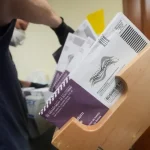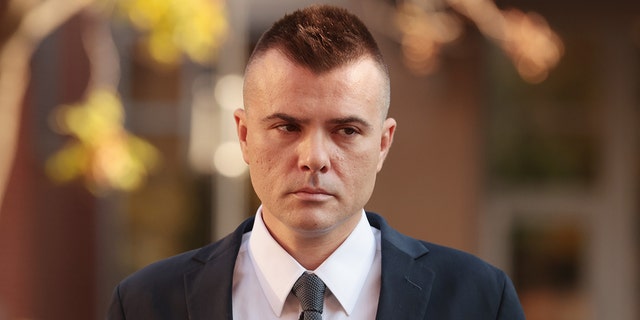
The FBI paid Russian national Igor Danchenko more than $200,000 to serve as a confidential human source from 2017 to late 2020.
FBI Special Agent Kevin Helson testified on day three of the trial of Igor Danchenko, the Russian national who served as the primary sub-source for ex-British intelligence officer Christopher Steele and his anti-Trump dossier.
Special Counsel John Durham charged Danchenko with five counts of making false statements to the FBI. Danchenko has pleaded not guilty to all charges.
DURHAM PROBE: FBI OFFERED CHRISTOPHER STEELE $1 MILLION TO CORROBORATE TRUMP ALLEGATIONS IN DOSSIER
Durham, in a filing last month, revealed that Danchenko was paid by the FBI to be a confidential human source from January 2017 through October 2020.
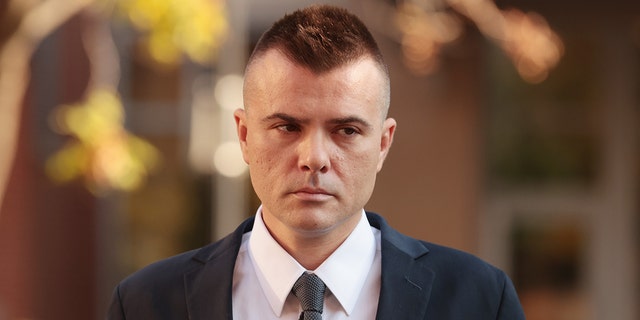
Russian national Igor Danchenko (Chip Somodevilla/Getty Images)
Helson testified Thursday that Danchenko was paid more than $200,000 by the FBI for his work over the three and a half year period he served as an FBI informant.
Helson testified that, at times, Danchenko was paid up to $3,000 by the FBI for conducting just one meeting.
Helson testified that he put in a request for another $346,000 payment for Danchenko when he was closed as an FBI source, but said that request was rejected.
If the final lump sum was approved, Danchenko would have been paid more than $500,000 by the FBI.
But Helson defended Danchenko and his work for the FBI, saying he was a valuable human source, and affirmed that losing him as an informant harms U.S. national security.
Helson testified that Danchenko’s source network was more impressive than any other informant he had encountered during his 20-year tenure at the FBI.
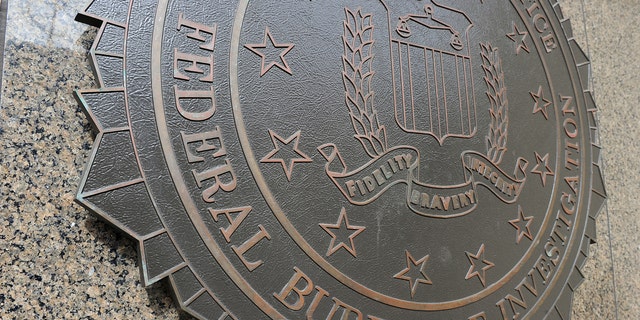
General view of the J. Edgar Hoover F.B.I. Building in Washington, U.S., March 10, 2019. REUTERS/Mary F. Calvert (Reuters/Mary F. Calvert)
Helson testified that from 2017 through 2020, Danchenko’s information contributed to some 25 FBI investigations at risk of “potential threat to him and his family.”
During cross-examination, defense attorney Stuart Sears asked if Danchenko “re-shaped the way the U.S. government perceives threats.”
Helson testified that the FBI “stood up a new unit” because of what the bureau learned from its experiences with Danchenko.
Fox News first reported in 2020 that Danchenko was the subject of an FBI counterintelligence investigation from 2009 to 2011.
That FBI investigation into Danchenko focused on his contacts with suspected Russian intelligence officers and reported attempts to facilitate payments for classified information.
Special Counsel John Durham on Thursday asked Helson about the case, to which Helson fired back, defending Danchenko and saying it was “hearsay at best,” and stressed that the case had been closed without any charges.
But Durham revealed that the agent who brought that case had served as an Army counterintelligence officer in Europe for nearly two decades.
Helson countered that the same agent implied that Danchenko was an active Russian intelligence agent, “which simply wasn’t true,” and that her experience in Europe wouldn’t necessarily qualify her to be an expert in Russian surveillance activity in the United States.
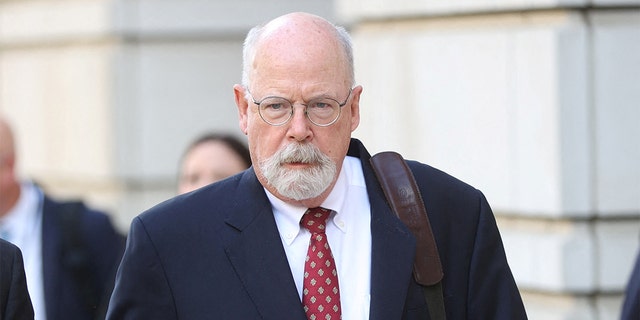
The jury found that Special Counsel John Durham’s team had not proven beyond a reasonable doubt that Sussmann’s statement was a lie. (Reuters/Julia Nikhinson)
Durham asked if Helson had given Danchenko a polygraph test to check on his motivations, but Helson said he had not.
Danchenko served as the primary subsource for ex-British intelligence officer Christopher Steele and his anti-Trump dossier.
The dossier was commissioned by opposition research firm Fusion GPS and paid for by the Hillary Clinton campaign and the Democratic National Committee through law firm Perkins Coie.
The dossier served as the basis for a Foreign Intelligence Surveillance Act (FISA) warrant and subsequent renewals against Trump campaign aide Carter Page.
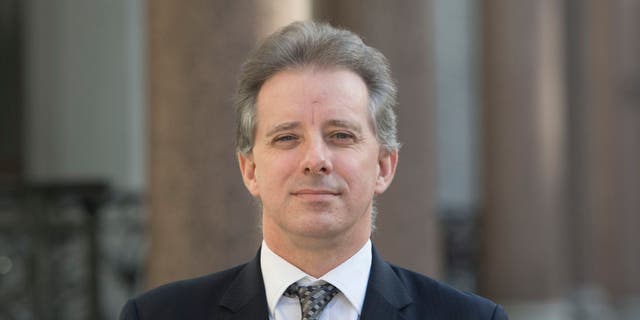
Christopher Steele, the former MI6 agent who set-up Orbis Business Intelligence and compiled a dossier on Donald Trump, in London where he has spoken to the media for the first time. (Photo by Victoria Jones/PA Images via Getty Images)
DOJ Inspector General Michael Horowitz in 2019 said the dossier was used to justify the initial FISA warrant and its three subsequent renewals. Republicans on the House Intelligence Committee first said the dossier served as the basis for those warrants and surveillance of Page.
The Justice Department admitted in 2020 that the FISA warrants to surveil Page, when stripped of the FBI’s misinformation, did not meet the necessary legal threshold and never should have been issued.
During testimony this week, it was revealed that the FBI offered Steele $1 million in 2017 to provide corroboration to the information and allegations included in the dossier. Steele could not do so.








